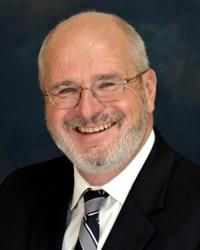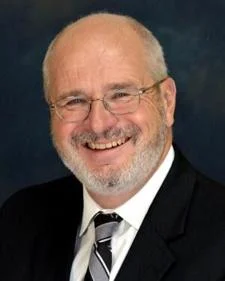Free Speech And The Kicker’s Folly
The furor Harrison Butker’s commencement speech at tiny Benedictine College in Kansas aroused offers thinking Americans a valuable lesson.

The Kansas City Chiefs kicker with the Neanderthal social and biblical views reminds us of the way free speech is supposed to work.
Butker’s speech was a superb example of preliterate thought. Devoid of logic, it overflowed with retrograde notions of how women, LGBTQ people, and all who are not affluent straight white conservative males should conduct themselves.
“I think it is you, the women who have had the most diabolical lies told to you,” Butker said at Benedictine. “Some of you may go on to lead successful careers in the world, but I would venture to guess that the majority of you are most excited about your marriage and the children you will bring into this world.”
The response to Butker’s remarks came fast.
Critics lambasted him for wanting to wish away any notion of equal rights for anyone who wasn’t, well, Harrison Butker. They said he was sexist, homophobic, transphobic, and, well, just a garden-variety bigot with uninformed and mean-spirited prejudices that radiated toxicity in all directions.
Even the NFL—itself hardly a bastion of progressive thought—sprinted to distance itself from Butker’s speech.
“His views are not those of the NFL as an organization. The NFL is steadfast in our commitment to inclusion, which only makes our league stronger,” Jonathan Beane, the league’s chief diversity and inclusion officer, told People magazine not long after Butker left the stage.
There were a few voices raised in Butker’s defense.
Isolated figures in the MAGA contingent complained that the kicker was being treated unfairly. Some even whined that he was being bullied by hordes of politically correct stormtroopers and “canceled.”
Nonsense.
No one stopped Butker from saying what he thought. No one at Benedictine or anywhere else—take note, Indiana University and other repressive college regimes around the country—banned him from campus or arrested him for exercising his First Amendment right to express whatever half-cooked convictions stewed in his brain before emerging from his mouth.
No, the people who disagreed with him just said he was wrong. More than a few others told him he was an idiot. Still others opined he was a bigot.
But no one shut him up.
That’s the way free speech is supposed to work.
When someone—anyone—says something that is moronic, malicious or just maladroit, the correct response in a self-governing society is not to slap handcuffs on him or her or try to shout that person down.
No, it’s to counter the bad speech, the ill-informed speech, even the bigoted or ugly speech, with good speech, with well-informed speech, with speech that invokes, to use Lincoln’s elegant phrase, “the better angels of our nature.”
I don’t know why this is so hard for some people to understand.
Living in a free society is not for the faint of heart.
Far from it.
There are no guarantees in our Constitution or anywhere else that we never will encounter an idea that troubles us, that offends us, that even demeans us. The cost of living in a country in which we are free to speak our minds—to give voice to our beliefs—is that we must coexist with others who have views with which we disagree.
If we use the power of government to shut them up, we grant the government the power and the authority to shut us up, too.
This does not mean, though, that we will go through life sputtering whatever drivel or venom occurs to us without having someone else tell us what we’ve said is either stupid or ugly. Just as we have the right to say what we think, they do, too.
Speech in a country that prizes and preserves liberty will be robust, even raucous. At times, it will even be bruising.
This is as it should be and always has been. Neither freedom nor truth often are won by the timid.
If we don’t like having our views contradicted—as Harrison Butker does—the remedy is not to speak.
Otherwise, we should be ready for the rough-and-tumble debate that is at the heart of a free society.
Or, to put it in a context the kicker might understand, if we don’t want to get hit, we should stay off the field.
FOOTNOTE: John Krull is director of Franklin College’s Pulliam School of Journalism and publisher of TheStatehouseFile.com, a news website powered by Franklin College journalism students. The views expressed are those of the author only and should not be attributed to Franklin College.
The City-County Observer posted this article without bias or editing.





